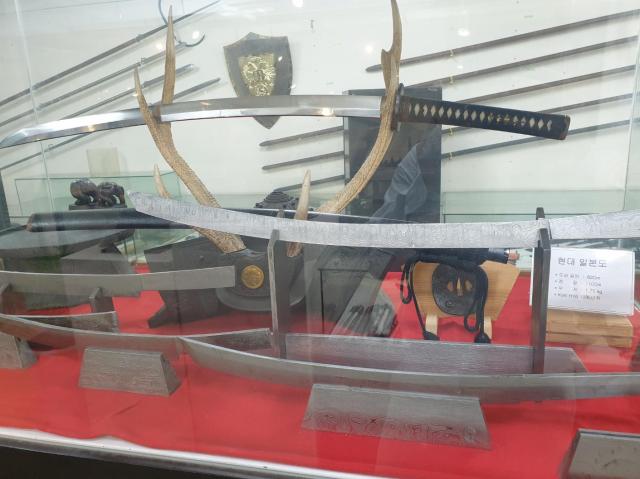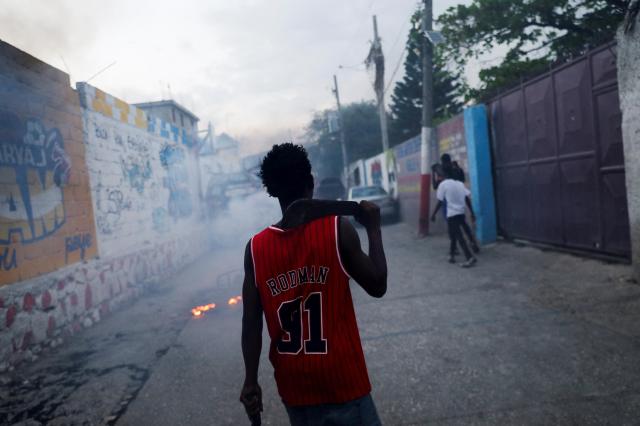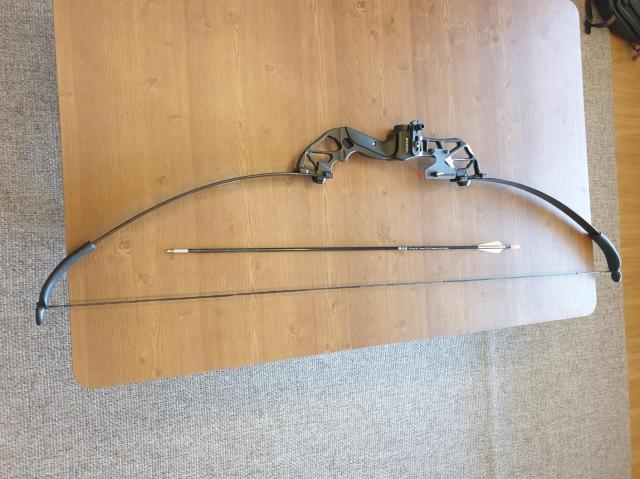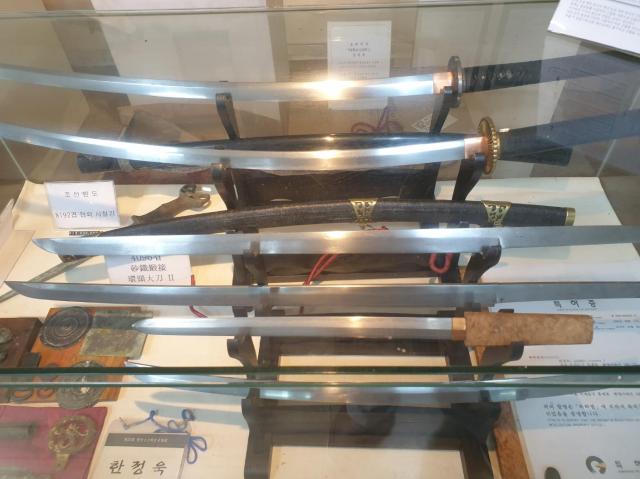
This grisly incident, the third murder case involving a katana since 2021, has ignited a heated debate over the country’s lax regulations on bladed weapons and other lethal items, many of which remain readily accessible despite their potential for misuse.
"The current laws governing the safety management of firearms, swords and explosives are too lax," said Han Dong-hoon, leader of the ruling People Power Party (PPP), in a Facebook post the following day.
“Individuals seeking to purchase swords or gas-powered guns are not even required to submit a 'medical certificate' that could reveal their history of mental illness," he lamented.

For instance, a machete, also called a jungle knife, requires no permits and is a commonplace household tool in rural areas. Despite its imposing 50-centimeter blade length, it is classified as a farming tool and is exempt from licensing requirements.
The danger of the broad, heavy knife was eerily evident in a 2021 incident, where a deranged individual, allegedly driven to the brink by noise complaints, brutally decapitated two neighbors using a machete.
Most recently, on July 31, a man in his 60s, in a fit of rage, brandished such a weapon menacingly at a neighbor in the eastern city of Chuncheon.

Unlike hunting firearms, which require renewals every three years and additional licenses, sword permits need no renewal. Consequently, law enforcement cannot confirm whether the current sword owner remains socially fit to possess such a lethal weapon. While there are annual inspections, they cover only a small fraction of registered owners.
In addition, while personal hunting guns must be stored at police stations and are only accessible during government-designated hunting seasons, blades can be kept at home, provided the requirements are met.
The Japanese sword used in the stabbing incident was reportedly approved by the police in January for “decorative purposes.” While the exact purchase route of the perpetrator is unknown, authentic katanas can be purchased online for as little as 298,000 won, with the store acting as the agent for issuing licenses.

More worrisome is the lack of regulations for replica swords. Although typically made from plastic, high-end replicas often incorporate carbon or stainless steel. While the law bans the sharpening of these replicas, as they can function similarly to genuine swords, adherence to this rule relies solely on individual conscience.
Professor Ryu Jun-hyuk of Daegu Catholic University's Department of Police Administration notes challenges in assessing the danger of such tools.
"If the blade length is over 30 centimeters, it could prove lethal. Still, machetes are quite common in the countryside for pruning, and as there are many variations of machetes on the market, a lot should be considered if they are to be restricted," he said.

"Substantial data would be crucial to prove such tools are dangerous. While some may argue that bows pose a threat, restricting items rarely used in crimes could infringe on people's rights," the professor said.
Bows and arrows are not subject to any regulatory oversight. For as little as 30,000 won (about $23), anyone can buy a recurve bow — the curved type often seen in Olympic competitions — along with metal-tipped arrows. Bows are categorized as leisure sports equipment in Korea, free from manufacturing and trade restrictions.
A recent experiment by The Aju Press revealed that even an inexperienced archer could cause significant damage with a recurve bow.
This reporter, with no prior archery experience, managed to make a dent in a concrete wall from about 20 meters away using a recurve bow and steel-tipped arrows purchased for just 64,000 won.
While accuracy depends on the archer's skill, a random shot fired into a crowd could prove deadly. In 2021, a man rained arrows upon a small city in Norway, claiming five innocent lives. Witnesses described the assailant firing arrows as if hunting animals.
In January 2007, a former professor, disgruntled with a court ruling, injured a justice in Seoul by firing a crossbow. Possession of the weapon requires an authority’s permit in the nation effective from 1997.

Law enforcement has pledged to tighten and refine restrictions to prevent future calamities, extending their scrutiny to firearms as well.
Lawmakers are also joining efforts to address the regulatory gaps. Five amendments to the weapon control law have been proposed, focusing on enhancing background checks and mental health evaluations for weapon purchasers.
The murder suspect, now in custody, is believed to be mentally unstable. He allegedly told police, “I've done this to get rid of Chinese spies."
The Korean Neuropsychiatric Association (KNPA) issued a statement after the incident, calling for improved access to mental health care. It also urges a supportive environment for acute mental illness treatment and improved hospital transport systems for mental health patients.
Copyright ⓒ Aju Press All rights reserved.


View more comments